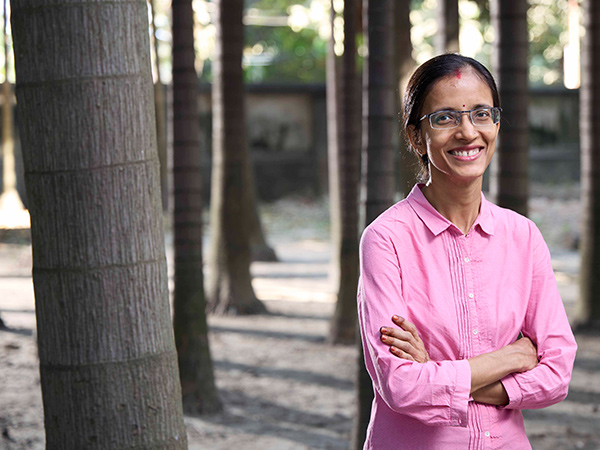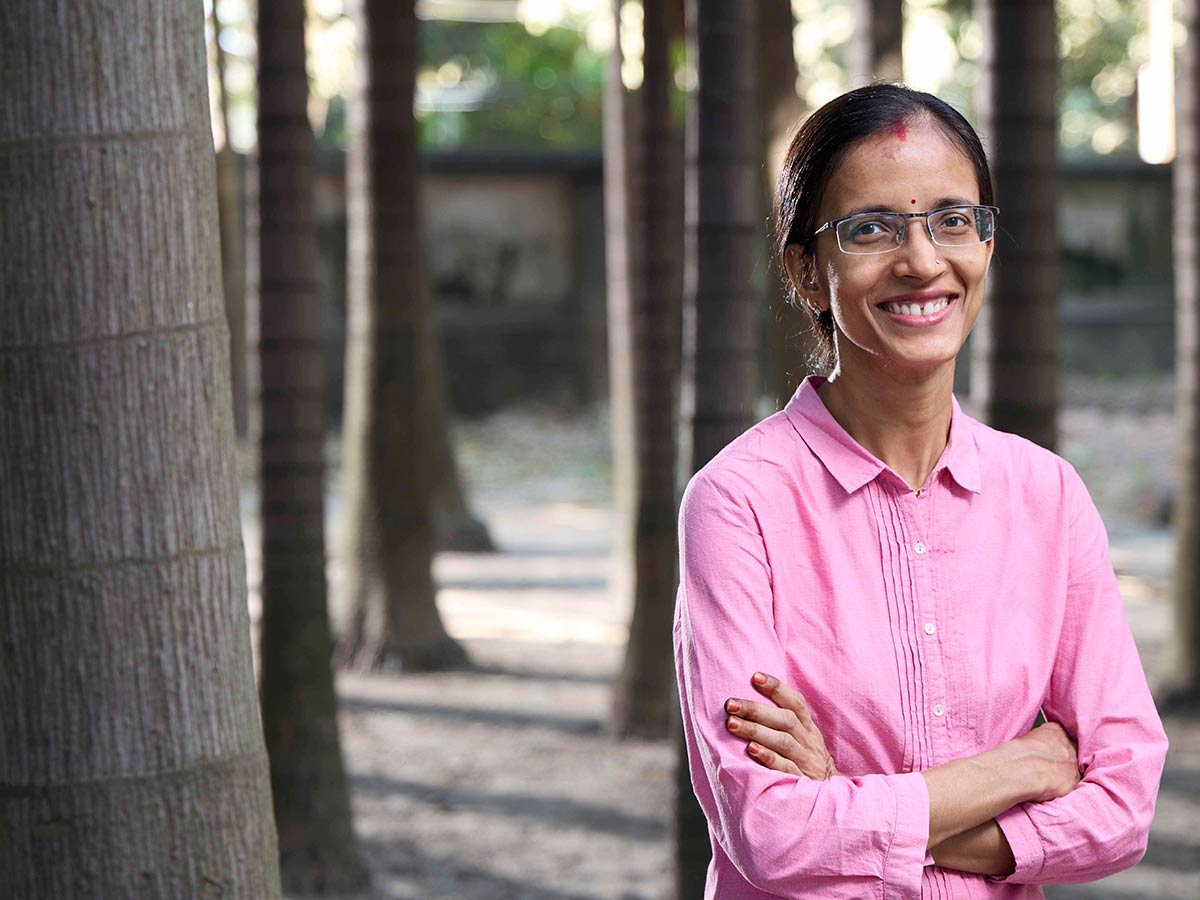The Infosys Prize 2024 in Mathematical Sciences is awarded to Prof. Neena Gupta for her work on the Zariski Cancellation Problem, a fundamental problem in algebraic geometry, a version of which was first posed in 1949 by Oscar Zariski, one of the founders of modern algebraic geometry. In 2014 she proved the striking result that a 3-dimensional affine variety constructed by Asanuma yields a negative answer to the Zariski Cancellation Problem in positive characteristic.
Infographic:
The Zariski Cancellation Problem: Solving one of math’s greatest problems
Scope and Impact of Work
Prof. Neena Gupta’s solution of the Zariski Cancellation Problem is a landmark achievement in affine algebraic geometry. Affine algebraic geometry explores what at first sight might look like very simple objects, namely collections of polynomials in variables: 3X^2+5YZ+W^3 is an example of a polynomial in the variable X, Y, Z, W. Zariski’s problem revolves around the cancellation property for polynomials, essentially asking whether an algebraic object (a quotient of a polynomial ring), that becomes isomorphic to the polynomial ring in variables X_1,.., X_n after adding a variable, is itself such a polynomial ring in some variables. In more geometric terms the problem asks: if two geometric objects have the same structure after adding a dimension to them (which is like considering cylinders over them), then do the objects themselves have the same structure?
Prof. Gupta's work not only resolved a long-standing problem in the case of positive characteristic, by answering the question in the negative, but also presents a theory that brings out unexpected connections between several concepts in the area. Her solution also had a striking elegance and made a great impact in the mathematical community. Her work has had a significant and lasting impact on algebraic geometry and commutative algebra, areas that are central to modern mathematics.
Bio
Neena Gupta earned her Ph.D. from the Indian Statistical Institute in Kolkata in 2012, where she is now a professor. Her contributions have been widely recognized: she received the prestigious Shanti Swarup Bhatnagar Prize in Mathematical Sciences in 2019, making her one of its youngest recipients and one of the few women to receive this honor.
Prof. Gupta received the Nari Shakti Puraskar from the President of India for the year 2021, and the DST-ICTP-IMU Ramanujan Prize in 2021. She was an invited speaker at the International Congress of Mathematicians in 2022 and received the 2023 TWAS-CAS Young Scientist Award for Frontier Science.
Most recently she has been selected to deliver the AWS-AMS Noether Lecture in January 2025 at the annual meeting of the American Mathematical Society.
Timeline
Jury Citation
Prof. Neena Gupta’s work has had a big impact in the field of algebraic geometry, particularly through her solution to the long-standing Zariski Cancellation Problem. Her work answers a very basic question which can be informally described as: if two geometric objects have the same structure after adding a dimension to them, can one deduce that they are in fact the same? In her breakthrough work she showed that, in positive characteristic, contrary to what one might expect, the answer is in the negative. Thus, the innocuous looking move of adding a dimension can destroy information. Prof. Gupta’s intricate proof shows that a specific 3-dimensional affine variety constructed earlier by Asanuma yields a counterexample to Zariski’s problem in positive characteristic. In a follow-up work, she revealed surprising connections of this problem with other fundamental problems and concepts on affine spaces. In subsequent work with her collaborators, she has established further striking results in commutative algebra and algebraic geometry.

Neena Gupta
I extend my heartfelt congratulations to Prof. Neena Gupta for her remarkable work, particularly her solution to the Zariski Cancellation Problem. Her work has had a big impact on the closely related fields of commutative algebra and algebraic geometry. She has done all her work in India and is a role model for many young people wanting to pursue fundamental research in the pure sciences in the country.



